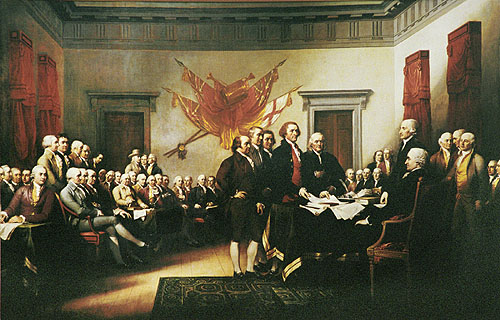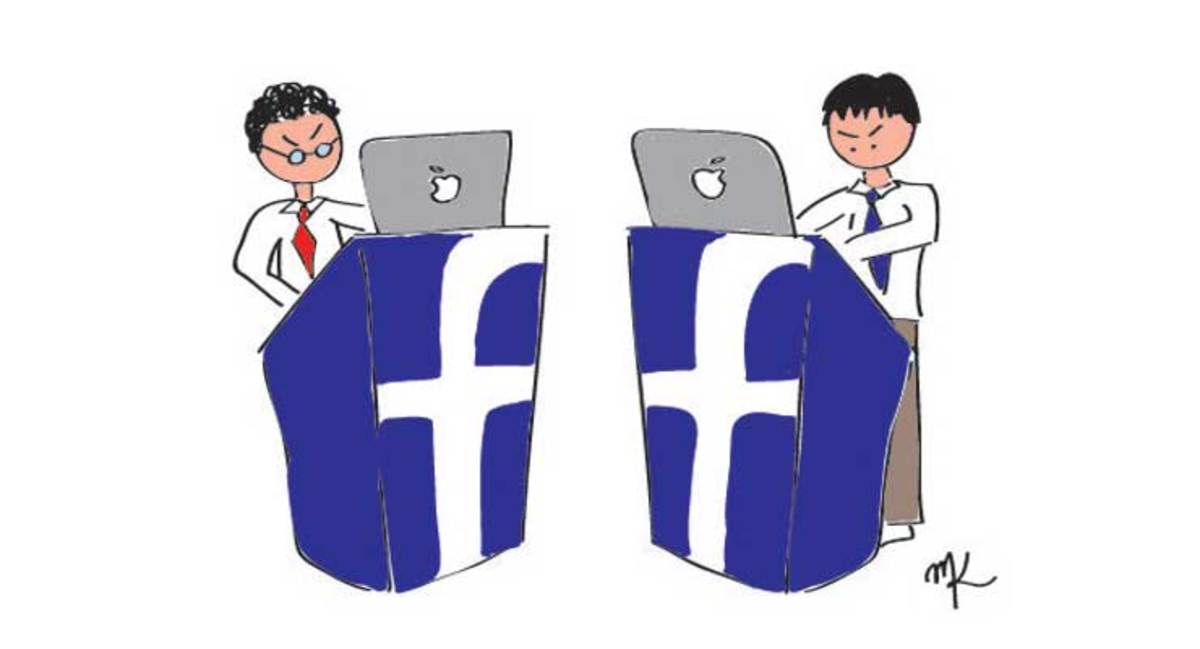Right, Power, Privilege, and License: They're Not the Same!
What Do These Words Mean?
Have you ever noticed how often people with a weak argument will insist that whatever issue they’re advocating is a right? The words “right,” “power,” “privilege,” and “license” are related, but by no means identical, and using them correctly will not only strengthen your own arguments, but enable you to puncture weak logic being advanced by someone else. Let’s start by looking at a brief definition of each term.
Right: a right is inherent in nature. It is granted by God (or nature, if you prefer) to all human beings just because we exist, and it cannot be purchased. Some examples of rights are life, liberty, the pursuit (note: not the achievement) of happiness, and the right to believe or not believe something as you see fit. These examples all meet the criteria of being inherent in nature and nonpurchasable. Anything that does not meet these criteria is not a right: it is a power, a privilege, or a license.
Power: a power is either granted by other human beings or acquired by force, as in the power to tax, the power to wage war, and the power to rule. It encompasses activities which are done to others, with or without their consent.
Privilege: a privilege is also granted by human beings, but does not involve force, and encompasses actions that are not done to other people. A privilege may or may not require a license. Some examples are the privileges of voting, marrying, purchasing private property, enrolling in college, and wearing casual clothes to work. None of these is a right—each must be granted by another person, and you must meet established criteria in order to be granted the privilege. Likewise, you can lose a privilege by breaking certain laws, obtaining the privilege fraudulently, or failing to maintain the criteria you met to be awarded the privilege in the first place.
License: a license is a purchased permission to perform a specific act, such a marriage license, a driver’s license, a hunting license, or a business license. A license must be purchased from a person authorized to issue it. Except for a marriage license, it is usually issued for a specific period, and the holder must reapply for renewal or reissuance. As with privileges, you must meet certain criteria in order to qualify for the license, and it can be revoked if you break certain laws, obtain the license fraudulently, or fail to maintain the criteria you met to purchase the license in the first place.

The Identification of Rights Can Be Confusing
A right’s inherent characteristic of existing in nature can cause some confusion when trying to determine whether something is or is not a right. Man can codify a right, enshrining it in legal documents such as the U.S. Constitution, but man cannot grant a right. Therefore, there are very few actual rights. Our Founding Fathers recognized this when they codified three of them in the Declaration of Independence: life, liberty, and the pursuit of happiness.
This last right establishes a very important point: we are not entitled to happiness, only to the pursuit of it. It’s interesting to note that the writers of the Declaration of Independence originally used the phrase "life, liberty, and property." They changed the phrase because they recognized that there is no right to property. Therefore they replaced "property" with "pursuit of happiness," codifying our right to pursue the acquisition of property (and anything else we would like to have or achieve), but correcting their previous error of inferring that we have a right to succeed in our efforts. The acquisition of property, for example, requires the consent of the seller/giver, and therefore is not a right, but a privilege. Once you own the property, you acquire the privileges associated with ownership—to build or not build on it (as permitted by law), to forbid or to permit trespassing, etc.
Words Do Have Meaning
The correct understanding of a word's meaning is necessary to the clear expression of thought. In the case of these four terms, people who are trying to strengthen a weak argument will insist on calling a power, privilege, or license a "right." When you explain to them that their issue is not actually a right, and suggest the correct word to them, their response is likely to be, "It doesn't matter which one I use; they all mean the same thing." And having said there's no difference between the four terms, the advancers of poor arguments will then persist in using the word "right," because deep down they sense, however incoherently, that it carries a moral authority the other terms do not.
Rights, then, are rare and precious, and deserve to be identified accurately. A right exists inherently in nature—possessed by all human beings just because we exist—and it cannot be purchased. Anything that does not meet these criteria may be a power, a privilege, or a license, but it is not a right. Understanding this difference enables us to make accurate distinctions about what is a right and what is not—a critical step in addressing the demands of someone who attempts to bolster their case by declaring, “It’s my right!”








